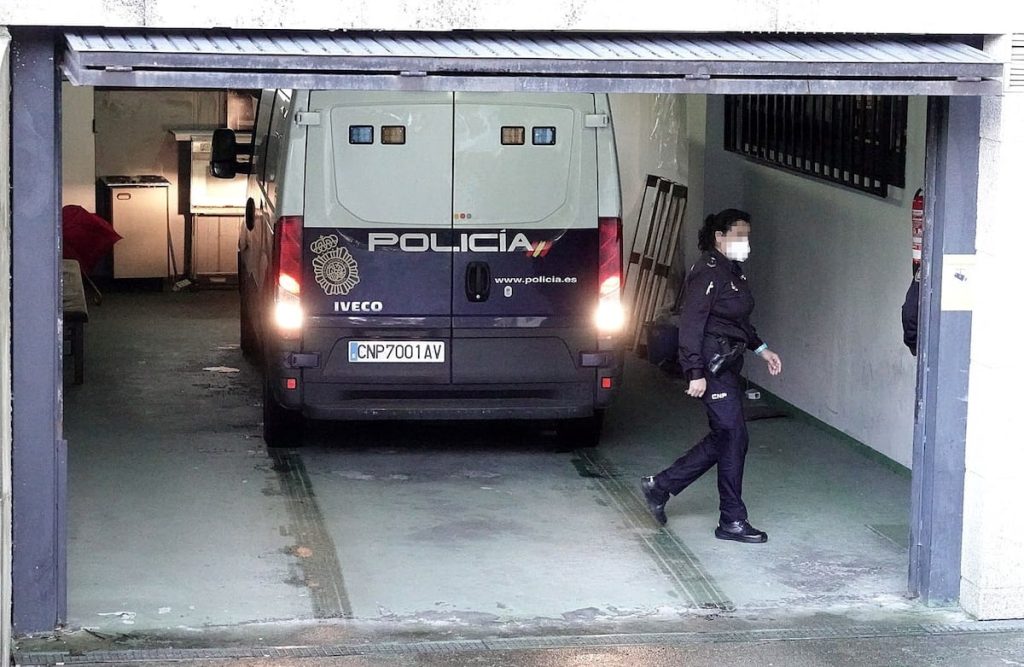The entrance of agents from the Anti-Corruption and Fiscal Crime Unit (UDEF) at the headquarters of the Official College of Nursing of Pontevedra in March 2021 uncovered a parallel business network through which money from member fees was being diverted. The operation resulted in the arrest of the president of over 30 years, Carlos Fernández, his wife, and his daughter. The gradual flow of money over the years had led to a continuous embezzlement which had been reported by the entity’s secretary. Investigations estimated the hole to be 11.5 million euros, but pending the verdict, it seems that the amount has decreased. After three years of investigation, the economic inquiry conducted by a court in Vigo has concluded with a plea agreement between the Pontevedra Prosecutor’s Office and the main accused which spared him and his family from jail time. Fernández admitted to all charges and facts outlined in the prosecution’s indictment in exchange for minimal sentencing and exonerating his wife and daughter from any legal or financial responsibility.
Phone taps and numerous financial and fiscal reports turned the nursing college upside down, which was managed by two administrators appointed by the court during the judicial investigation. Successive court orders reflected the financial embezzlement and pointed to the president as the alleged mastermind. Fernández and his family had set up at least three companies to divert the nursing fees paid by members, a corporate conspiracy that aimed to deplete the entity’s funds. This parallel wealth was managed through the companies Galaprint, Gestión Jurídica Gallega (GJG), and Instituto Gallego para la Formación y Promoción Social (IGAP), as per the investigation.
Despite this, the financial gap has been closed this week in the fifth section of the Pontevedra Court with minimal sentences for the supposed culprits. The Prosecutor’s Office and the defense of the former 36-year president of the collective had been working for months to reach a plea agreement to avoid a trial. Fernández accepted a two-year prison sentence for embezzlement but will not serve it if he avoids further criminal activities during this time. He is also disqualified from acting as a manager. The civil terms of the sentence require the accused to pay 158,000 euros in compensation and a fine of 1,080 euros to be paid to the entity to avoid imprisonment.
In his nearly four-decade tenure as president of the Official College of Nursing of Pontevedra, with offices in Vigo and the provincial capital, very few were aware of these irregularities. For the over 4,000 enrolled nurses, everything seemed to function without a hint of suspicion, despite the Fernández family controlling the administration of the college, which collects over 600,000 euros annually in fees from its members. The tranquility was shattered in 2021 when the family was arrested and spent three months in prison to prevent tampering with evidence, charged with alleged offenses of money laundering in connection with embezzlement and falsification of documents related to the entity’s accounts.
An exception within the facility was the entity’s secretary, José Faustino Portela, who had been in the position for over 20 years. He had accused the president of “sinking” the institution with his mismanagement, and had publicly disclosed the disputes between them in a statement sent to the media along with various documentation exposing economic anomalies. He denounced the bankruptcy of the institution with a series of sentences totaling six million euros. The latest sentence required the Pontevedra college to pay 1.5 million euros to the General Council of Nursing of Spain, while a previous court ruling from 2014 had already sentenced the college to pay 4.5 million euros.
The tight control exercised by the Fernández family over the Official College of Nursing of Pontevedra even prompted an admonition from the Valedora do Pobo in April 2017, four years before the case erupted. The equivalent institution in Galicia to the Ombudsman directed a recommendation to the now convicted president of the institution to “take the necessary measures to immediately call for elections and ensure their dissemination on the college’s website.” The communication highlighted complaints from institution staff who believed that “the statutes of this public corporation had been tailor-made for the board” because they did not allow for the renewal of the board by not publicly calling for elections. Those complaints already warned that the management was following “unfair, opaque, and antidemocratic criteria.”















